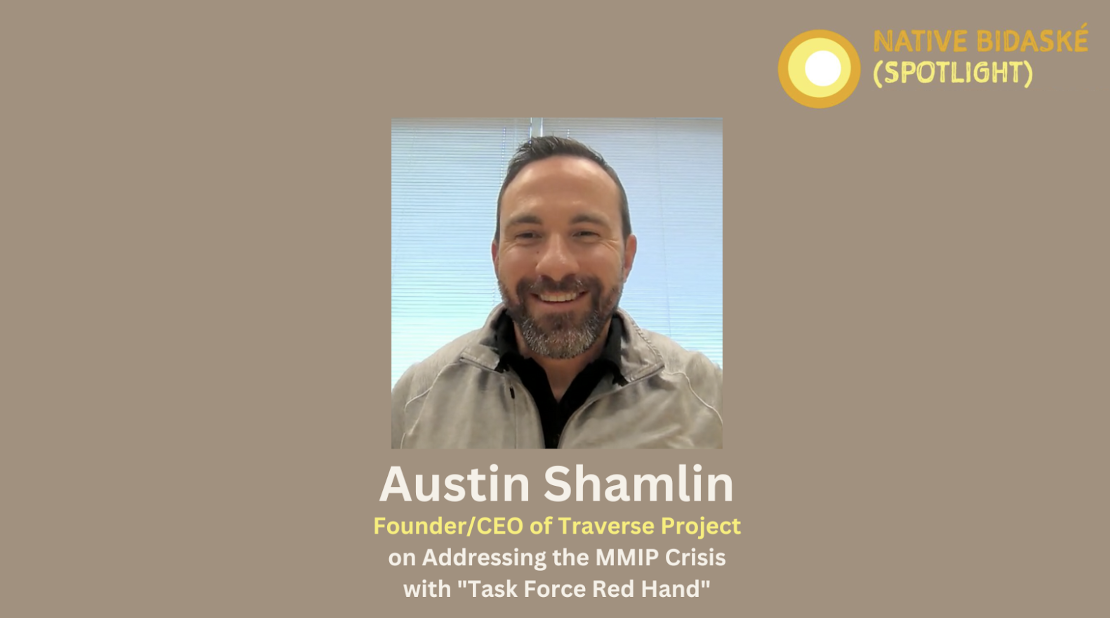
- Details
- By Native News Online Staff
In this conversation, Levi Rickert, the editor of Native News Online, interviews Austin Shamlin from the Traverse Project about their initiative called "Task Force Red Hand." The Traverse Project is a nonprofit focused on countering human trafficking, and they have taken on the issue of Missing and Murdered Indigenous People (MMIP).
Austin explains the three-tiered approach of Task Force Red Hand, which includes an awareness and education component, enhanced law enforcement solutions through data and intelligence, and an aftercare program to support survivors. He discusses the lack of data and resources available for tribal law enforcement to address MMIP cases and the importance of building trust and partnerships with Native communities.
We also touch on the connections between MMIP and human trafficking, the need for policy changes to empower tribal law enforcement, and how non-Native allies and organizations can support the Traverse Project's efforts.
Tune in to Native Bidaské LIVE this Friday, November 29th at 12 EST on Native News Online's Facebook or YouTube.
More Stories Like This
Native News Weekly (August 25, 2024): D.C. BriefsNative News Weekly (February 22, 2026): D.C. Briefs
NCAI Releases Sttatement on the Passing of Rev. Jesse Jackson
Colusa Indian Energy Participates in Port of Quincy Town Hall on Columbia Basin Power Project
Q&A: Jingle Dress Dancer Answered Call to Ceremony in Face of ICE Violence
Help us defend tribal sovereignty.
At Native News Online, our mission is rooted in telling the stories that strengthen sovereignty and uplift Indigenous voices — not just at year’s end, but every single day.
Because of your generosity last year, we were able to keep our reporters on the ground in tribal communities, at national gatherings and in the halls of Congress — covering the issues that matter most to Indian Country: sovereignty, culture, education, health and economic opportunity.
That support sustained us through a tough year in 2025. Now, as we look to the year ahead, we need your help right now to ensure warrior journalism remains strong — reporting that defends tribal sovereignty, amplifies Native truth, and holds power accountable.
 The stakes couldn't be higher. Your support keeps Native voices heard, Native stories told and Native sovereignty defended.
The stakes couldn't be higher. Your support keeps Native voices heard, Native stories told and Native sovereignty defended.
Stand with Warrior Journalism today.
Levi Rickert (Potawatomi), Editor & Publisher


